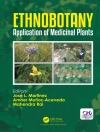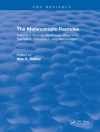This volume deals with one of the most understudied aspects of everyday life in Russian society. Its main heroes are the providers of goods and services to whom people turn for healthcare instead of official medical institutions. A wide range of agents is described—from network marketing companies to ‚folk‘ journals on health as well as healers, complementary medicine specialists, and religious organizations.
Krasheninnikova’s book is based on rich empirical observations and avoids both positive and critical assessment of the analyzed phenomena. Her investigation pays particular attention to the legal, social, and economic status of informal healthcare providers. She demonstrates that these agents tend to flourish in bigger towns rather than in small settlements, where public healthcare is lacking. The study reveals the important role of institutions that are generally not related to alternative medicine, such as pharmacies, libraries, and church shops.
The result is a vivid and thorough introduction to the world of self-medication and alternative healing in contemporary Russia. A special emphasis was made on the flexibility of boundaries between formal and informal healthcare due to the evolution of rules and regulations.
Über den Autor
Yulia Krasheninnikova is an expert at the Laboratory for Local Administration of the National Research University Higher School of Economics in Moscow and associate professor of Public Administration at the HSE Campus in Perm. She studied modern history and political science at Perm State University and at the Moscow School of Social and Economic Sciences. She holds a Ph D (Candidate of Sciences) in History. Over the past nine years she has been conducting research in the field of public healthcare and has published academic papers on health policy, professional medical communities, and alternative health practices in Russia.












